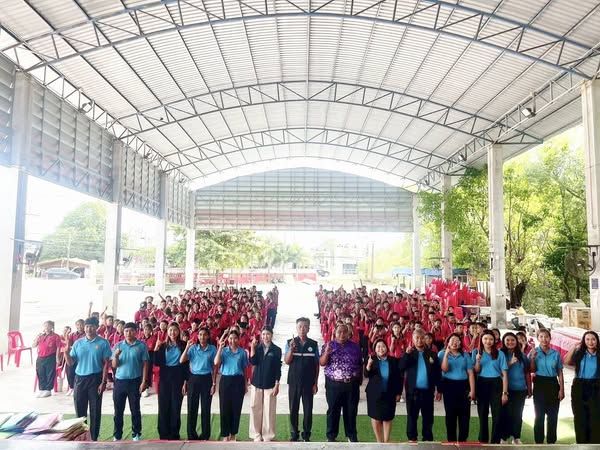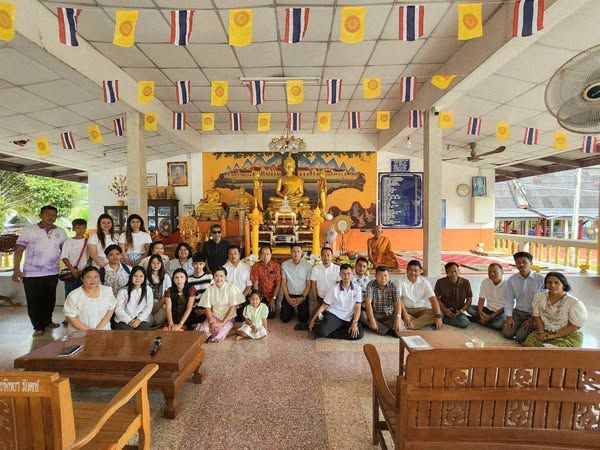“Thailand’s government is taking proactive steps to manage the economy and reduce the cost of living. Efforts include regulating prices, promoting local goods, attracting foreign investment, and investing in infrastructure. Stay tuned for a detailed report after the 100-day mark! #ThailandGovernment #EconomicManagement #CostOfLiving #ForeignInvestment #InfrastructureInvestment”
ThailandGovernment #EconomicManagement #CostOfLiving #ForeignInvestment #InfrastructureInvestment
Managing the Economy and Cost of Living
The Deputy Prime Minister Phumtham Wechayachai has responded to critiques concerning the perceived stagnation in economic improvement and the reduction of living costs under the new government’s first 60 days. Steering the Commerce Ministry, Phumtham underscores that pivotal projects aimed at regulating high prices of daily necessities and amplifying the reach of local goods to international markets are underway. These initiatives, although in their infancy, are expected to take a tangible form after reaching the 100-day milestone.
International Outreach and Investment Promotion
In a similar vein, Prime Minister Srettha Thavisin has been actively engaging with the global community to foster investment relations. Upcoming schedules include strategic discussions with Thai commercial attaches and the Board of Investment, with the prime aim of positioning Thailand as a lucrative haven for foreign investment. This approach is part of a broader vision to enhance the economic landscape from an international vantage point.
Response to Criticism and Government Workload
Confronting skepticism around the prime minister’s leadership style, Phumtham asserts that a robust division of responsibilities among the six deputies is in place. The prime minister’s preference to elucidate government actions, coupled with the desire to possibly expand the cabinet, is contextualized against the backdrop of a global financial crisis and the necessity for rigorous economic revival measures. Phumtham also highlights the prime minister’s hands-on approach to problem-solving, which includes regular visits to various provinces to understand and address the populace’s issues.
Meanwhile, the opposition’s criticisms are perceived by Phumtham as anticipated political maneuvering. He emphasizes a focus on beneficial policies over political gains and expresses an openness to constructive feedback, which he likens to a reflective tool for the government’s performance.
Prime Minister’s Address: “From Policy to Action in 60 Days”
Prime Minister Srettha Thavisin recently hosted a television segment that shed light on the urgent steps taken by the government within the initial 60-day tenure. These steps include strategies to alleviate financial burdens on citizens by reducing electric and fuel costs and addressing household debt. The broadcast also mentioned the government’s initiatives to bolster the agriculture sector, with plans to penetrate markets in Africa and the Middle East, and a renewed focus on enhancing the tourism industry through visa exemptions.
Investments in infrastructure are also on the agenda, with the government prioritizing the development of high-speed rail networks and airport facility upgrades to reinforce Thailand’s logistics and transportation capabilities.
These early government efforts suggest a multifaceted approach to tackling immediate economic challenges while laying the groundwork for long-term growth and stability. With the promise of a detailed report post the 100-day mark, the current administration aims to exhibit a comprehensive strategy that will ultimately be judged by the people it aims to serve.
Frequently Asked Questions
What measures is Thailand’s government taking to manage the economy and reduce the living costs?
The Thai government has initiated several steps to manage the economy and alleviate the cost of living. These include regulating the prices of essential goods, promoting locally produced goods, drawing in foreign investment, and investing in infrastructure development. Efforts are being closely monitored, with a detailed report to be released after the government reaches its 100-day milestone.
How is the Thai government responding to criticism about economic stagnation and high living costs?
Deputy Prime Minister Phumtham Wechayachai has addressed concerns over economic stagnation and high living costs by highlighting ongoing projects designed to regulate prices and widen the market reach for local goods. He also underscored the government’s structured approach to responsibilities among deputies and the prime minister’s active role in problem-solving through provincial visits. Phumtham emphasizes that the government is focused on implementing beneficial policies and is receptive to constructive feedback.
What steps has the government taken in the first 60 days to address economic issues, and what are its future plans?
Within the first 60 days, the Thai government has implemented urgent measures to reduce financial burdens on citizens, such as lowering electricity and fuel costs, addressing household debt, supporting the agriculture sector, and boosting tourism through visa exemptions. Additionally, the administration is focusing on infrastructure investments, including the development of high-speed rail networks and airport upgrades. This multi-pronged strategy is intended to address immediate economic issues and set the stage for long-term growth and stability, with further details to be shared after the 100-day mark.




